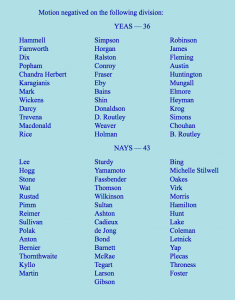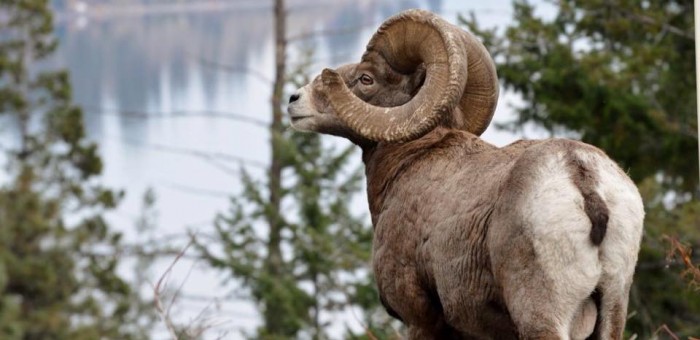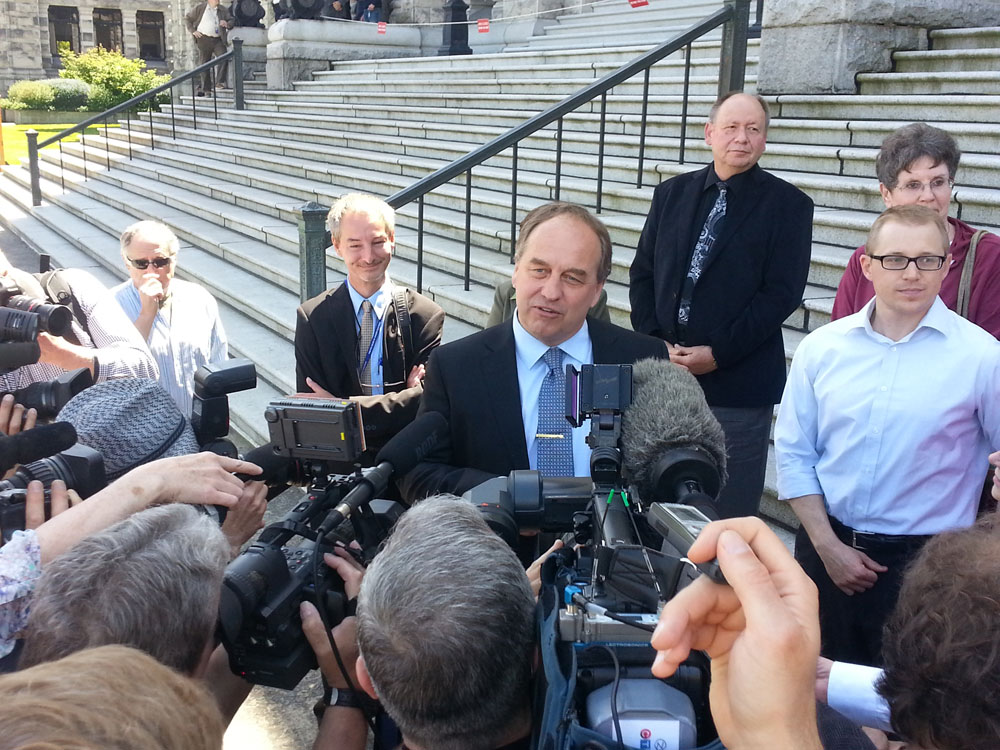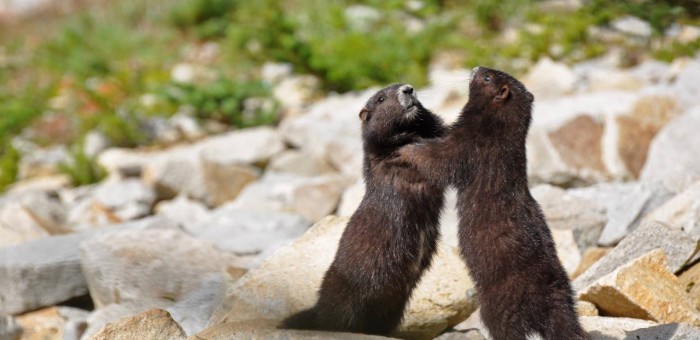Media Release
Introducing two bills to protect dogs and encourage responsible pet ownership
Today in the Legislature I introduced two bills aimed at ensuring the humane treatment of dogs who end up being seized, while upholding public protection from dangerous dogs. The first bill is entitled Bill M239 — Animal Liability Act, 2017 and is based on similar legislation in Manitoba. It ensures that owners of animals are held liable for the actions of their animals. I introduced a very similar version of the Animal Liability Act last year. My office and I subsequently undertook extensive discussions with numerous stakeholders. Earlier, we summarized some of these discussions, including the relationship of my bill with Section 49 of the Community Charter.
Our extensive consultations led us to tweak the Animal Liability Act, 2017 and to also propose amendments to Section 49 of the Community Charter. These changes had been recommended by the SPCA and are found in Bill M238, Community Charter Amendment Act, 2017.
Below I reproduce the text and video of my introduction of the two Bills. I append our media release at the end.
1) Community Charter Amendment Act, 2017
Text of Introduction
A. Weaver: I move that a bill intituled Community Charter Amendment Act, 2017, of which notice has been given in my name, be introduced and read a first time now.
Motion approved.
A. Weaver: I’m pleased to introduce a bill intituled the Community Charter Amendment Act, 2017. This bill makes a number of changes to section 49 of the Community Charter, which regulates special powers in relation to dangerous dogs. It adds legal clarity for proceedings and appeals in accordance with the Offence Act. It restricts the definition of a “dangerous dog” to a dog that kills or seriously injures a person or animal without provocation. It also creates standards of care for dogs held in long-term impounds, requiring that they have access to outdoor space and daily exercise. For seriously ill dogs in need of veterinary care, a compassionate-release clause is included.
These are the changes that the BC SPCA has been calling for after seeing too many situations in which vague legislation has led to unjust suffering of impounded dogs. With this act, we seek to ensure the humane treatment of dogs who end up in the system, while upholding public protection from dangerous dogs.
I move that the bill be placed on the orders of the day for second reading at the next sitting of the House after today.
Bill M238, Community Charter Amendment Act, 2017, introduced, read a first time and ordered to be placed on orders of the day for second reading at the next sitting of the House after today.
Video of Introduction
2) Animal Liability Act, 2017
Text of Introduction
A. Weaver: I move that a bill intituled the Animal Liability Act, 2017, of which notice has been given in my name, be introduced and read a first time now.
Motion approved.
A. Weaver: I’m pleased to be introducing a bill intituled the Animal Liability Act. According to the Canada Safety Council, more than 460,000 dog bites occur each year in Canada. Over the years, British Columbians have called on B.C. legislators to act. Here in B.C., we do not have adequate laws to ensure that owners are liable for the actions of their pets or animals. Indeed, we only have liability being imposed on the basis of scienter doctrine, negligence or, in some cases, the Occupiers Liability Act.
This bill would ensure that owners are liable for any damages resulting from harm that the animals cause to a person or property. This bill, based on similar legislation that exists in Manitoba, is designed to ensure that owners of animals take ownership seriously and are held responsible for the actions of their pets.
I move that the bill be placed on the orders of the day for second reading at the next sitting of the House after today.
Bill M239, Animal Liability Act, 2017, introduced, read a first time and ordered to be placed on orders of the day for second reading at the next sitting of the House after today.
Video of Introduction
Media Release
Weaver tables bills to ensure responsible pet ownership and the protection of dogs
For immediate release
March 9, 2017
VICTORIA B.C. – In 2015, Buttons the Therapy Dog – who worked at hospitals comforting and cheering up patients – was so aggressively attacked by another dog that he had to be immediately put down.
The owners of the violent dog had been instructed to keep their pet secured and muzzled because of an incident with a different dog just a few months prior. When Buttons walked by with his owners Yvonne and John McDonald, however, it had been left unrestrained. Because of existing B.C. laws, irresponsible pet owners seldom face any consequences for the actions of their dogs. Since losing Buttons, Yvonne and John have been advocating for the need for animal liability laws in B.C.
Today in the legislature, Andrew Weaver, Leader of the B.C. Green Party, introduced the Animal Liability Act, 2017 and the Community Charter Amendment Act, 2017. The Animal Liability Act is modeled on Manitoba’s legislation and makes owners directly liable for any damages caused by their pets. The Community Charter Amendment Act would add legal clarity and humane treatment standards to Section 49, which regulates special powers in relation to dangerous dogs. Consideration for the circumstances around a dog attack are introduced, as are standards of care for dogs held in long term impounds. For seriously ill dogs in need of veterinary care a compassionate release clause is included.
“The evidence clearly points towards irresponsible pet owners being the problem, but right now our legislation only penalizes the dogs themselves,” said Weaver.
Currently, if a dog severely bites someone, under Section 49 of the Community Charter that dog could be seized and destroyed, but the owner would not necessarily face any charges, be responsible for any damages, or be restricted from future pet-ownership.
“We need clear liability legislation so that owners are required to ensure their pets responsibly trained, well taken care of, behave safely – and that they are held to account if their pet does behave in a dangerous manner,” said Weaver.
“Ultimately I brought this issue forward because there is a gap in our legislative framework in B.C. regarding pets and pet ownership liability. Other provinces have addressed it, and while I don’t think it is wise to follow Ontario’s lead in banning certain breeds, we do need something to ensure that pet owners are responsible for the behaviour of their pets and that there are stiff penalties for not being a responsible pet owner.”
The Animal Liability Act does not, nor is it intended to, put full liability on pet owners if their dog acts out of self defence or in response to aggression. The context that led to a bite is as important as the fact that a bite took place.
– 30 –
Media contacts
Mat Wright, Press Secretary
+1 250-216-3382 | mat.wright@leg.bc.ca
Responding to Government’s Ridesharing Announcement
Weaver Responds to Government’s Ridesharing Announcement
March 7th, 2017
For immediate release
VICTORIA B.C. – After tabling the Rideshare Enabling Act twice in the B.C. Legislature, MLA Andrew Weaver is glad to see the provincial government also advancing the issue.
“This government initiative is long overdue and a critical issue for the 21st century economy,” says Weaver, Leader of the B.C. Green Party.
Until today, the B.C. Greens have been the only party advocating for the responsible adoption of ridesharing in B.C., with Weaver introducing his Ridesharing Enabling Act in April 2016 and again in February 2017. Weaver held consultations with stakeholders to create the ridesharing framework bill.
“I have been working on this issue for two years, not out of electoral calculation, but rather as a matter of principle. The principle is – as I have stated repeatedly – that if we are to put innovation at the centre of our new economy, we must embrace the best ideas wherever we find them and improve upon them with made-in-BC expertise,” says Weaver.
“You cannot be considered a leader in technology if you are unwilling to embrace embrace technology already in widespread use.”
Earlier this year, more than 20 local tech CEOs penned a public letter to the B.C. Liberal government articulating the very same reasoning.
“My support for ridesharing lies in the fact that it makes good economic sense. And, hand in hand with that, it is also good environmental policy. Ridesharing, in all its forms, means fewer cars, less dependence on oil and gas, and a much smaller carbon footprint.”
“At the same time, I sympathize with the taxi drivers, many of whom have paid very high prices for their licenses. The government has a duty to ensure that existing industries are adequately consulted, and the announcement from the Taxi Driver’s Association suggests they failed to do so.”
It is important to note that Weaver and the B.C. Green Party’s support of ridesharing doesn’t indicate support for one specific ridesharing company.
“All companies doing business in B.C. are expected to be good corporate citizens and a B.C. Green government will hold them to a very high standard,” says Weaver. “In the government’s announcement today they said they ‘expect’ companies to behave when they do business in B.C. – that’s not good enough. A Green government would require them to do so.”
– 30 –
Media contact
Mat Wright, Press Secretary
+1 250-216-3382 | mat.wright@leg.bc.ca
Standing up for Resident Hunters over Foreign Trophy Hunters
Today in the legislature I introduced Bill M234 — Wildlife Amendment Act, 2017.
This bill combined two previous bills that I had introduced in the legislature. The BC Liberals did not wish to bring either of these to second reading. The first Bill was to designed to reduce the preferential treatment of non-resident hunters by eliminating the minister’s discretion to make separate rules for resident and foreign hunters when it comes to obtaining LEH permits. This bill requires all hunters to enter a lottery for their LEH tags, as is done in other jurisdictions.
The second Bill I had already introduced was designed to ensure that all edible portions of animals hunted in British Columbia are taken to the hunter’s domicile. In addition, the proposed changes remove grizzly bears from the list of animals exempt from meat harvesting regulations. These put in place a major logistical barrier to foreign trophy hunting.
Two new additions were included in the updated bill. I am grateful to the feedback I received on my earlier bills that led to these modifications. First, if passed this bill would require that edible portions be packed out prior to, or in conjuction with, any other body parts of the game carcass. This is consistent with the notion is that hunting is primarily for food and the the trophy should be viewed as a by-catch.
The second addition would disallow those convicted of fisheries or wildlife offences from becoming fishing or hunting guides in the province of British Columbia.
Below I reproduce the text and video on my introduction along with the accompanying press release .
Text of the Introduction
A. Weaver: I move that a bill intituled Wildlife Amendment Act, 2017, of which notice has been given in my name on the order paper, be read a first time now.
Motion approved.
A. Weaver: It gives me great pleasure to introduce this bill that, if enacted, would make a number of changes to the Wildlife Act.
This bill restricts the practices of non-resident trophy hunters who come to B.C. to kill large game by making three specific amendments to the Wildlife Act. The proposed changes remove grizzly bears from the list of animals exempt from meat harvesting regulations, ensures all edible portions of animals killed in B.C. are taken directly to a hunter’s residence, and requires the meat to be taken out first, before the hide or head.
This bill also stops government from letting non-resident hunters buy preferential access to limited-entry hunting permits and bans people convicted of fisheries or wildlife offences from becoming fishing or hunting guides in the province of British Columbia.
For local sustenance hunters, the vast majority of hunters in B.C. that is, this bill merely echoes what they are already doing — harvesting wild game to bring the meat home to feed their families. For non-resident trophy hunters coming to B.C. to hunt an animal only for its hide, skull or antler, this bill puts in place a significant logistical challenge.
Bill M234, Wildlife Amendment Act, 2017, introduced and read a first time.
A. Weaver: At this time, I move, pursuant to standing order 78a, that this bill be referred to the Select Standing Committee on Parliamentary Reform, Ethical Conduct, Standing Orders and Private Bills for immediate review.
Madame Speaker: I will point out that that’s a departure in practice.
All those in favour? Nay is heard. Division has been called.
 A. Weaver: May I have this referred to second reading — a motion to do so?
A. Weaver: May I have this referred to second reading — a motion to do so?
Bill M234, Wildlife Amendment Act, ordered to be placed on orders of the day for second reading at the next sitting of the House after today.
Video of the Introduction
Media Release
Weaver tables Wildlife Amendment Act to Committee Stage – Liberals vote Nay
For immediate release
March 6th, 2017
VICTORIA B.C. – Today in the legislature MLA Andrew Weaver tabled the Wildlife Amendment Act directly to committee stage, leading to an immediate vote in the House. Weaver and the B.C. NDP voted in favour of moving the bill directly to committee stage for review. The B.C. Liberals voted against it.
“This bill works to ensure that sustainable, respectful sustenance hunting in British Columbia is grounded in a science-based conservation policy and that the interests of residents hunters are put ahead of foreign trophy hunters.
“It is clear these are values the B.C. Liberals do not share – as illustrated by their vote against further consulting on this bill today. But, I am glad to see that the B.C. NDP support my initiatives on this file,” says Weaver.
The bill would restrict the practices of non-resident trophy hunters who come to B.C. to hunt large game by making three specific amendments to the Wildlife Act. The proposed changes remove grizzly bears from the list of animals exempt from meat harvesting regulations, ensures all edible portions of animals killed in B.C. are taken directly to the hunter’s residence, and requires the meat to be taken out first – before the hide or head. For non-resident trophy hunters coming to B.C. to hunt an animal solely for its hide, skull, or antlers this puts in place a prohibitive logistical challenge.
The bill also stops the government from letting non-resident hunters buy preferential access to limited-entry-hunt permits. And lastly, it bans people convicted of fisheries or wildlife offenses in B.C. and other jurisdictions from becoming fishing or hunting guides.
– 30 –
Media contact
Mat Wright, Press Secretary
+1 250-216-3382 | mat.wright@leg.bc.ca
Welcoming Elections BC investigation into political contributions
Weaver welcomes Elections BC investigation into political contributions
March 6th, 2017
For immediate release
VICTORIA B.C. – Today Andrew Weaver, Leader of the B.C. Green Party, welcomed the news that Elections BC is investigating potential contraventions of the Election Act.
“I’m thrilled that Elections BC will be investigating the information regarding indirect political contributions and other potential contraventions of the Election Act that were recently made public through the media,” says Weaver, also the MLA for Oak Bay-Gordon Head.
“However, this issue is so serious and of such consequence to British Columbians that I am also asking the RCMP to determine whether there are grounds for a criminal investigation. I will be sending the RCMP a letter this afternoon.”
Media reports over the weekend allege that many donations to the Liberals are made fraudulently or in violation of the Election Act and that the Liberals are encouraging this behaviour by holding cash for access events. The Liberals raised more than $12 million last year, more than any provincial political party in power. The B.C. NDP, which also accepts both corporate and union donations, have also allegedly pressured lobbyists for donations. The NDP have not released fundraising figures for 2016 but raised $3 million in 2015.
“It is crucial that all investigations be done in a thorough and timely manner, and that the results be released before the May 9th election. British Columbians have a right to know, before they cast their ballot, whether the B.C. Liberal Party or the B.C. NDP have broken the law.”
The B.C. Green Party stopped accepting corporate and union donations in September.
“This situation shows clearly the need for wholesale political finance reform in B.C,” says Weaver. “It’s time for British Columbians to take back B.C.”
– 30 –
Media contact
Mat Wright, Press Secretary
+1 250-216-3382 | mat.wright@leg.bc.ca
Introducing Endangered Species Legislation for British Columbia
Today in the legislature I introduced a private member’s bill entitled Bill M 225 — Endangered Species Act, 2017. This Act builds off the Ontario Endangered Species Act and the B.C. version of their legislation tabled by the BC NDP in 2011. My office was grateful to work with Gwen Barlee from the Wilderness Committee and environmental lawyer Sean Nixon from EcoJustice to close loopholes and make the bill more proactive and preventative. I also incorporated language from the United States Federal Endangered Species Act to make it more effective and comprehensive. Of note is the addition of a section that mirrors the US Endangered Species Committee, known as the “God Squad” because of the substantial impact of its decisions on the natural world.
Below I reproduce the text and video of the speech I gave as I introduced the bill. I also include the accompanying media release.
Text of my Introduction
A. Weaver: It gives me great pleasure to move that a bill intituled Endangered Species Act, 2017, of which notice has been given, be introduced and read a first time now.
Motion approved.
A. Weaver: I’m pleased to be introducing a bill intituled the Endangered Species Act, 2017. The world is in the midst of an extinction crisis, and humans are the driving force. British Columbia is the most biodiverse province in Canada, but it is also the home to more at-risk species than any other province. Half of British Columbia’s assessed species are deemed at risk.
In addition to identifying, protecting and rehabilitating at-risk wildlife populations and habitats, this act seeks to introduce proactive measures that will prevent healthy species from declining in the first place. The act substantively expands upon the Ontario Endangered Species Act, the B.C. version of their legislation tabled by the B.C. NDP in 2011 and the American federal Endangered Species Act. Under the guidance of lawyers and advocates who have worked tirelessly on this issue, I was able to close problematic loopholes and make this act more proactive, transparent and effective.
Of note is the addition of a section that changes how exemptions are made. Under this new section instead of being left to the discretion of the minister, if government or industry want to take actions that will result in a species going extinct, it is required to go through an independent publicly disclosed board review.
I move that the bill be placed on the orders of the day for second reading at the next sitting of this House after today.
Bill M225, Endangered Species Act, 2017, introduced, read a first time and ordered to be placed on orders of the day for second reading at the next sitting of the House after today.
Video of my Introduction
Media Release
Weaver introduces Endangered Species Act
For immediate release
February 27th, 2017
VICTORIA B.C. – The entire world in is the midst of an extinction crisis and humans are the driving force.
“In Canada, British Columbia is the most biodiverse province, but it is also home to more at-risk species than any other province,” says Andrew Weaver, Leader of the B.C. Green Party. “Half of B.C.’s assessed species are deemed at risk.”
“B.C.’s biodiversity is globally significant, rapidly declining, and lacking any substantial legal protection – this Act aims to change that by bringing into force standalone legislation to safeguard British Columbia’s native wildlife species and their habitat.”
In addition to identifying, protecting, and rehabilitating at-risk wildlife populations and habitats, this Act seeks to introduce proactive measures that will prevent healthy species from declining in the first place.
“Compared to reactive government efforts to intervene in a habitat already out of balance, preserving healthy ecosystems is easier, more cost effective, and avoids needless animal suffering,” says Weaver. “Furthermore, as the global climate warms and precipitation patterns shift, having a complete ecosystem within which animals and plants can try to adapt will be essential.
“The Federal Species at Risk Act and B.C.’s current non-binding patchwork approach to protecting wildlife is clearly not working. The biodiversity in our province is prodigious, but it is not without risk. We will lose it if we do not act.”
This Act builds off the Ontario Endangered Species Act and B.C. version of their legislation tabled by the B.C. NDP in 2011. It incorporates language from the United State Federal Endangered Species Act to make it more effective, proactive, preventative, and comprehensive. Of note is the addition of a section that mirrors the US Endangered Species Committee, known as the “God Squad” because of the substantial impact of its decisions on the natural world.
– 30 –
Media contact
Mat Wright, Press Secretary
+1 250-216-3382 | mat.wright@leg.bc.ca








